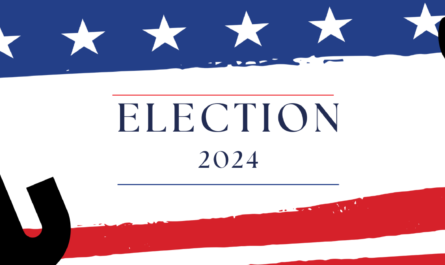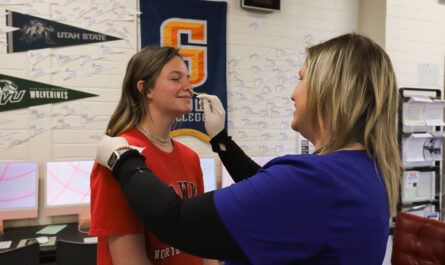The Utah legislature, in session since Jan.19, has proposed multiple notable bills, some of which could eventually pertain greatly to education in this state.
Nearly 700 bills have been proposed, but for North Sanpete High, there are only a few that will significantly impact the school. Firstly, a historic Public Education Budget has been signed into law by newly appointed Gov. Spencer Cox.
In the past, annual budgets for public schools were called “Base Budgets,” and in general, the budget would stay the same from year to year, unless the legislature decided to change something about it. In November 2020, voters passed an amendment to the Utah Constitution that the Base Budget must now, by law, include compensatory funding for inflation, student enrollment growth, and other factors.
“They pushed for a lot of money last year, and then COVID happened,” said Vice Principal Natalie Stansfield, “then they had to kind of retract it and change things a little bit.”
This year’s budget is the first to cooperate on these new precedents, and it includes about $400 million in investments for public education. The two most notable changes in budgeting are the $121 million stipend that will give every licensed educator in Utah a $1,500 bonus, and a 6% increase in the state’s Weighted Pupil Unit (WPU), a number that represents the amount of financial effort put into each student in Utah.
In addition, $105 million was added to the budget due to inflation and fluctuations in student enrollment. A Public Education Stabilization Fund was also created with a balance of $128 million. This fund exists as a buffer for any unprecedented economic downturn in Utah because of uncontrollable events that impact schools.
“Any time that they bring any money into education, it’s great,” Stansfield said. “It provides so many opportunities for everyone… it helps everybody.”
Most of these changes will not take effect until 2022, but the teacher bonus will be distributed as soon as March. Even though it may be a while before the impacts of this funding can be seen, the changes are still historically significant, and will greatly-and positively-impact educators and students in the years to come.
A second bill introduced in this legislative session will have massive repercussions when its outcome is decided. House Bill 302, known as “Preserving Sports for Female Students,” addresses a topic that has already ignited wildfires of controversy across the nation. Introduced by Republican Representatives on Feb. 3, the bill is seen as a response to Pres. Joe Biden’s Executive Order 13988, which was in turn regarded by the Human Rights Campaign as the “most substantive, wide-ranging executive order concerning sexual orientation and gender identity ever issued by a United States president.”
HB302, in essence, bans transgender girls from participating in high school sports. Proponents and supporters of the bill argue that transgender female athletes have unfair physiological advantages against cisgender girls. Opponents argue that with the passage of this bill, the transgender community of teens will be stigmatized further, when they are already at higher risk for suicide. The Utah House of Representatives passed this bill on a largely party-line vote, 50-23, on Feb. 11. It has now moved on to the Utah Senate, where if it is passed, Gov. Cox must choose whether or not to sign the bill for it to be made into law.
Newspapers and organizations all over the nation have both criticized and praised the introduction of this bill, and all eyes are on Utah now for what happens moving forward.
The bill proposed that high school athletic activities be categorised into one of three groups: “male,” “female,” or “coed.” The bill details that students of the “male sex” would not be allowed to participate in sporting activities designated for the “female sex,” and vice versa. Sex is defined in HB302 as “the biological, physical condition of being male or female, according to an individual’s genetics and anatomy at birth.”
These classifications are considered short-sighted and were called “a cruel attempt to exclude a marginalized group of children” by Troy Williams, executive director of Equality Utah, a prominent LGBTQ group.
The bill does not address trangender boys, who would apparently still be allowed to participate in boy’s sports after the passing of the bill. It has been called unconstitutional, and concerns have been raised that the passing of the bill would have detrimental economic ramifications for the whole state-it has even been said that if this bill is passed, hopes for the Olympics being held in Utah at some point in the future will be completely dashed.
For NS, this bill is not greatly significant. “We as a high school,” said Stansfield, “we follow the Utah High School Athletic Association’s rules and regulations. That’s who we follow.”
Gov. Cox, who is one of the most prominent Republicans in the state, is unsure of the validity of HB302. He said in a news conference that he is “not comfortable with the bill as it stands right now,” and that he will veto the bill if both sides are unable to come to a reasonable agreement that benefits everyone.




